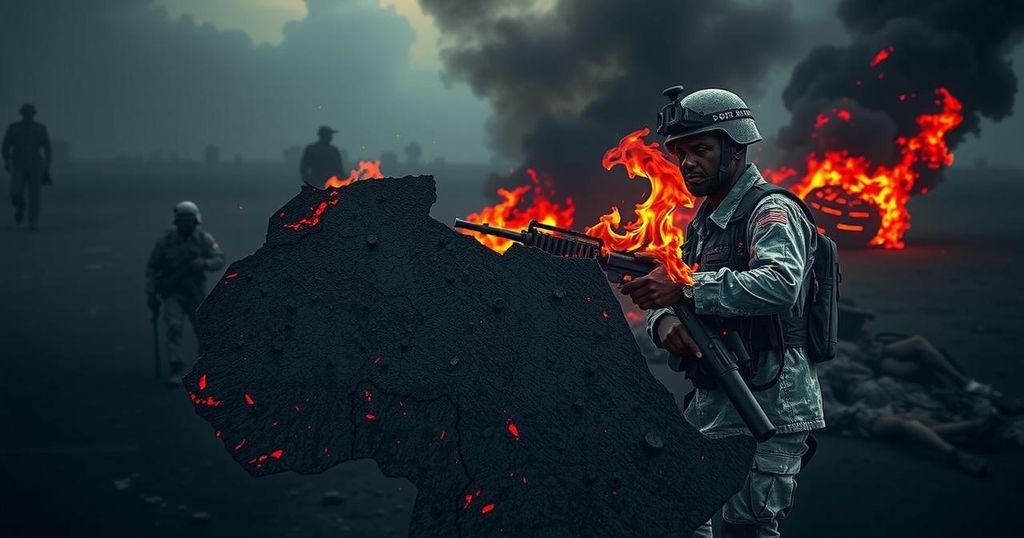South Sudan: A Nation Struggling for Stability and Peace After 13 Years of Independence

South Sudan, the newest African nation, continues to confront severe challenges 13 years post-independence, including ongoing humanitarian crises, a history of civil conflict, and recent floods that have displaced over a million people. Despite a peace agreement in 2018, the country is struggling with poverty, famine, and refugee influxes from neighboring Sudan, indicating a prolonged need for effective solutions to achieve stability.
South Sudan, the world’s youngest nation, confronts persistent challenges despite its independence from Sudan in 2011. Established after a lengthy civil war, South Sudan’s creation was intended to foster peace, yet it quickly descended into chaos. The initial hope for stability was shattered in 2013 when President Salva Kiir Mayardit dismissed his entire cabinet, leading to accusations of a coup against Vice-President Riek Machar. This ignited a devastating civil war that resulted in tens of thousands dead and over 4 million displaced. Although a peace agreement in 2018 brought about a cessation of warfare, the country continues to grapple with challenges stemming from both internal strife and external pressures, notably the influx of approximately 500,000 refugees from conflict-torn Sudan. Moreover, South Sudan faces a dire humanitarian crisis characterized by widespread famine and poverty, as reported by the United Nations. The situation worsened recently due to significant flooding, which the government had anticipated would cause extensive damage and displacement; indeed, over a million people have suffered as a result. Aid efforts remain severely hampered as access becomes increasingly difficult due to the conditions on the ground. South Sudan’s struggle is a reminder of the complex realities faced by nations emerging from lengthy conflicts, highlighting the need for sustainable solutions to foster genuine stability and progress.
The formation of South Sudan marked a significant geopolitical change in Africa, following years of conflict primarily rooted in cultural and political disparities with the north. The 2005 peace agreement that culminated in independence was seen as a beacon of hope, yet the ensuing years revealed the deep-seated issues that persisted, such as ethnic tensions, poverty, and governance challenges. The civil war that erupted soon after independence showcased the fragility of peace in the region. Recent humanitarian reports indicate that the country’s struggles are compounded by environmental disasters that exacerbate already precarious living conditions.
In summary, South Sudan remains plagued by the legacies of conflict and instability despite its recognition as an independent nation 13 years ago. The ongoing humanitarian catastrophe, coupled with recent flooding and external pressures from neighboring states, poses significant challenges to the country’s prospects for peace and recovery. Without comprehensive and sustainable interventions, it appears that the path toward stability in South Sudan will remain arduous and fraught with difficulty.
Original Source: www.express.co.uk








